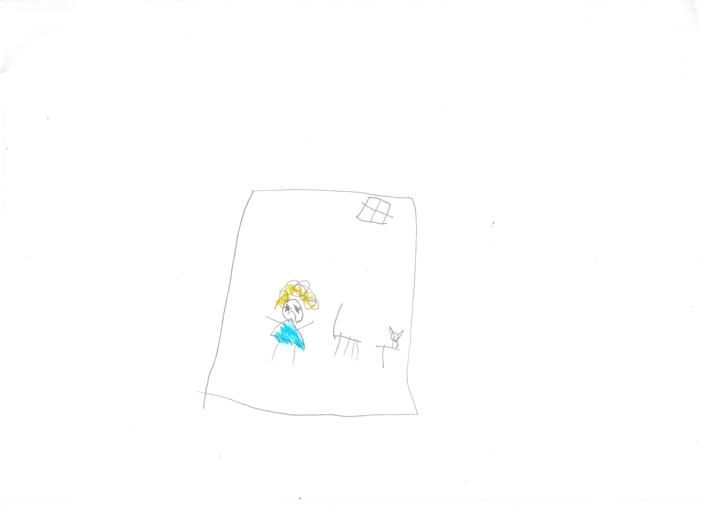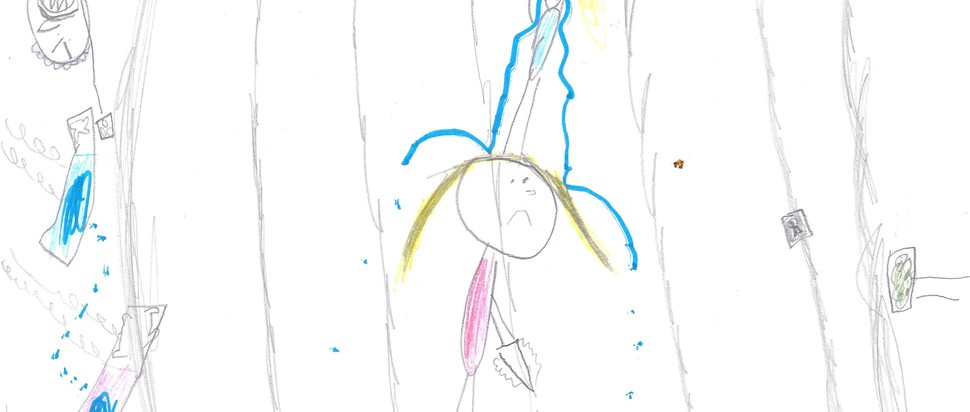Youth in Revolt: What children taught me about living during COVID-19
No one is immune to the impact of COVID-19, least of all kids. One writer explores how working with children during a pandemic shed new light on her own youth
It’s 9pm and I’m slightly drunk on Lidl white wine. Bars are shut, the last flat party I went to was in March, and I entered my twenties in the middle of a pandemic. And so, I often find myself smoking out my bedroom window, hoping I’ll inhale something that feels close to youth. I’ll turn to one of my flatmates, in some allegedly enlightened drunken drawl, and say, “You know, I would’ve loved this when I was ten – the pandemic and all.” This assumption – that I would’ve loved staying in, watching TV, and avoiding playground gossip – is ignorant and untrue and yet I find myself asserting it at least once a week.
I know it’s untrue because, just four hours before, I’m at work in an after-school care club, handing out snacks and playing “What’s the time, Mister Wolf?” These days, I get an unshakable jealousy as the kids tell me about their 'boyfriends' and 'girlfriends', their school dramas, and park outings. Their lives seemingly go on as usual while I’m restricted to socially distanced Tinder dates and Zoom seminars.
It’s only in the in-between moments – the lining up and the register checks – that the children let the outside real world slip in: their parents are stressed; their gran is ill; Halloween was shit. They’re not immune to COVID-19 and they’re going to be dealing with its aftershock for years to come. They are people with the same stresses as us, but with significantly less power. Of course, they’re better at hiding these anxieties – and that’s the worry.
Our relationship with children has changed and we can’t express that we care in the same way as before. There is no tying of shoelaces, no warm embraces. Our quality time with children, whether chatting or playing, is at a two-metre distance, a chasm which says we’re out of reach and out of touch. Because we are and that skin-to-skin reassurance is gone. I’ve always sought – and still do seek – comfort in the physical. My hand was always reaching, grasping for someone else’s. To deny that to a child feels like a crime.

We are left with only words and even words are hollow these days. Political disillusionment is rife everywhere; I can’t watch the news and Twitter leaves a pit in my stomach. Clearly, the adults don’t know what they’re doing (my improvised arts and crafts sessions are a testament to that). Kids know this and weak excuses – “because I told you so” – enrage them, and rightly so. We could learn from this angst and kids’ incessant pestering is a reminder that we are allowed to make demands. We are allowed to question and bother and deeply irk those in charge – and we should do so. If there is ever a time to invoke the tenacious child within us all, it is now.
But, because there’s little room for childishness in a pandemic, it became even more exaggerated. There’s more nonsensical chatting, fewer philosophical debates; more muddy clothes, fewer questions into my relationship status. There’s a desperate clinging to youth; I did it myself in lockdown. I’d get too drunk on a Zoom call and wake up the next morning, in last night’s clothes, Euphoria-inspired make-up smudged across the pillow. Youth became performative. This drawn out masquerade – while perhaps immature – was a craving for recklessness, for colouring outside the lines. There is a completely understandable and justifiable craving for the release of this behaviour – for myself and for the kids in my care.
It’s easy to get wrapped up in oneself, to think of our wasted collective youth. This year was meant to be poor budgeting and casual sex and friends’ couches and fuck it, I’ll do it tomorrow, let’s go out tonight. But this year was also meant to be sleepovers and football games and first kisses – just not for me.
These kids, unlike myself, manage to tap into some kind of innate resilience, no matter how bleak things get. They’ve not been shielded from anything: some of their parents are now jobless, they’ve lost loved ones and they may live with someone particularly vulnerable. And yet, they have a relentless positivity: “The COVID will be over soon!” “My mum is saving lives!” “Look at my new mask!” With kids, better times are a “when”, not an “if”.
This pandemic has aged us all and it’s been very special to experience it while surrounded by the kind of youth that reminds me of my own. We can laugh at the things that make us laugh and we can cry at the things that make us cry – whether that’s losing tig or getting ghosted. We can still feel even in a pandemic. We are only young, after all.
Top image by Astrid McCarthy; inline image by Phoebe McCarthy
